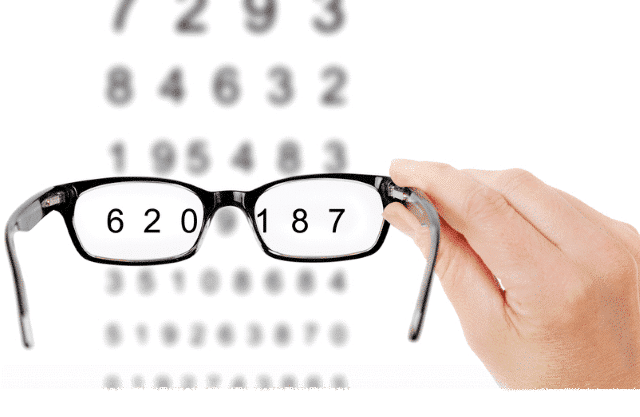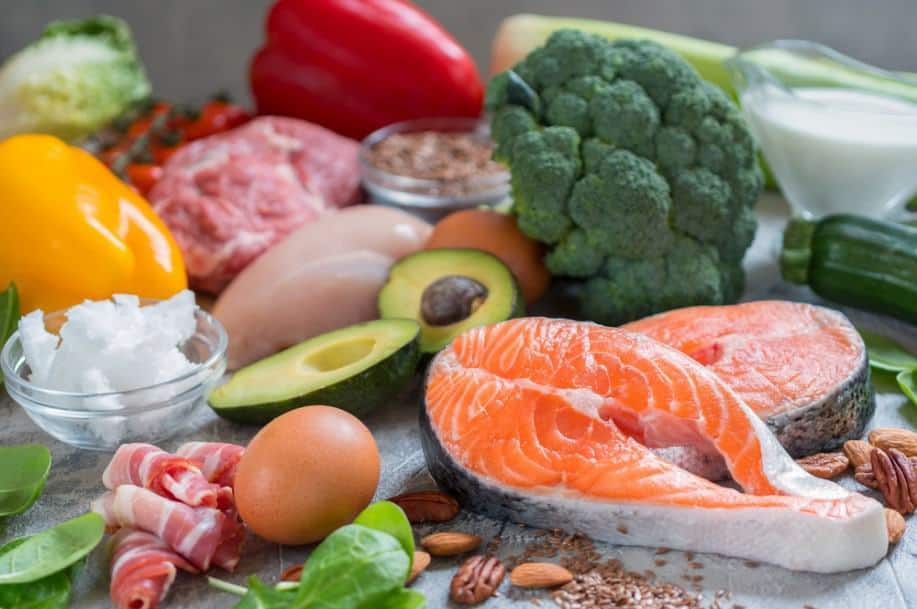How to Keep Your Eyes Healthy – Healthy Eye Care Tips
By 2050, the number of people in the United States with vision problems or blindness is expected to reach 8 million.
Although the human eyes are one of the most vital parts of the human body, many people do not consider how their dietary and lifestyle habits can affect their eye health.
Eating a proper diet, taking useful dietary supplements, and “exercising” your eyes can protect them from vision-impairing ailments like glaucoma, dry eyes, cataracts, and macular degeneration.
You should still visit an eye doctor who provides full vision services at least once a year to make sure there are no issues arising with your eyes, but there are many steps you can take to prevent the development of eye problems and maintain your eye health.
Here are a few of the best ways to maintain your eye health and prevent future eye health problems.
Vitamins and Minerals for Healthy Eyes

One of the most important steps to maintaining or improving your eye health is to ensure your body is getting the necessary intake of minerals, vitamins, and micronutrients vital to eye health.
Here are some of the most important vitamins, minerals, and nutrients that play a significant role in maintaining good vision and healthy eyes.
Omega-3 Fatty Acids
Omega-3 fatty acids are essential in protecting the health of the human eyes.
Omega-3 fatty acids are mainly found in fatty fish like sardines, salmon, mackerel, and tuna and have various health benefits, including those for the eyes.
Research has shown that omega-3 fatty acids can protect against dry-eye and macular degeneration.
It would be best to consider adding fish to your meals at least twice a week, but fish oil supplements are also an option for omega-3 fatty acids.
Vitamin E
Vitamin E is an antioxidant that protects your eyes from free radical damage.
Research shows that adequate vitamin E intake may assist in maintaining the health of the eyes by lowering the risk of macular degeneration and cataracts ailments.
However, you should not rely on vitamin E supplements. Vitamin E supplements do not appear to have beneficial effects when compared to adequate vitamin E intake from dietary sources.
Wheat germ is one of the best natural sources of vitamin E, and adding wheat germ to your diet can easily help you fill your vitamin E needs.
Last update on 2025-04-15 / This article includes affiliate links/Images via Amazon Product Advertising API. I may earn commissions on purchases made through these links.
Vitamin A
Vitamin A is another essential nutrient that helps ensure good vision and the health of the human eye.
In fact, it is a vital vitamin needed for the production of rhodopsin, necessary for the correct functioning of the retina.
Vitamin A also helps prevent macular degeneration, cataracts, and even dry eyes.
Animal sources of vitamin A are better absorbed, but plant sources (carotenoids) are more abundant.
Both apricots and blueberries are rich in lycopene and beta-carotene, which the body uses to create Vitamin A.
There are several types of carotenoids, and some are not even converted to vitamin A, although they are still very important.
For example, two important carotenoids are lutein and zeaxanthin, which are not converted to vitamin A, but they work to protect your retina from macular degeneration, which is common during the aging process.
Many studies have shown that zeaxanthin and lutein are very important to the health of the human eye.
Lutein and zeaxanthin are carotenoid pigments found in green and leafy vegetables such as spinach and kale.
They are also found in other vegetables such as broccoli, collard greens, and green leafy lettuce.
Vitamin C
Vitamin C is an antioxidant found abundantly in fruits and vegetables.
Primary sources of vitamin C include oranges, grapes, strawberries, broccoli, kale, green peas, cantaloupe, and red or green peppers.
Vitamin C protects and maintains healthy eyes by lowering the progression of macular degeneration and cataracts diseases.
Vitamin B
All forms of Vitamin B are also very important for maintaining healthy eyes and good vision.
Vitamin B12 is particularly important for ensuring the proper functioning of the optic sensory nerves.
Pantothenic acid (vitamin B5) is another crucial B vitamin for eye health.
Each of the B vitamins is found in different foods, so it is necessary to eat a diet that contains a variety of plant and animal foods.

Zinc
Zinc is one of the primary micronutrients responsible for maintaining the proper functioning of the human eye.
Most doctors agree that an appropriate zinc intake is necessary to ensure maximum eye health. This is because the macula part of the eyes, including the choroid and the retina, has a high zinc concentration compared to any other part of the eye.
Zinc is involved in converting beta-carotene, mainly found in vegetables, into vitamin A, lowering the risk of night blindness.
Combining zinc with vitamins C and E may also slow down the early development of eye diseases such as macular degeneration, particularly among the elderly.
Some zinc-rich foods include lobster, eggs, mixed nuts, beans, shrimp, garlic, spinach, dark chocolate, and brown rice.
You can also consider taking a zinc supplement before bed, as taking zinc before sleep can improve your sleep quality and assist with obtaining your daily dietary needs.
Selenium
Selenium is another antioxidant that helps in fighting diseases and infection prevention.
The mineral is mostly known for preventing free radical harm and damage to the macula part of the eye and lens.
Therefore, low concentrations of selenium in your body can increase the chance of developing eye-impairing ailments like cataracts or macular degeneration.
Good sources of selenium include red meat, oats, onions, crab, shrimp, and brown rice.
Chromium
Chromium is a vital mineral that helps reduce or relieve intraocular pressure, which is becoming more common due to the strain on the eyes from staring at computer monitors for extended periods.
Food rich in chromium can improve vision by reducing stress on the ocular muscles.
Primary sources of chromium include romaine lettuce, onions, molasses, wheat germ, green beans, and bran cereals.
The Best Supplements for Eye Health
Along with eating a diet high in the nutrients listed above, you can also use various dietary supplements to keep your eyes healthy
Areds 2 Eye Vitamins by the company Physician’s Choice is based on the Age-related Eye Disease Study (AREDS 2), which outlines the best formulation of vitamins, minerals, and antioxidants for eye health.
Taking this supplement for eye health ensures your body has enough of the most important nutrients for eye health. Although consuming a diet high in nutrients is superior to any supplement, this supplement can help fulfill dietary needs.
Last update on 2025-04-15 / This article includes affiliate links/Images via Amazon Product Advertising API. I may earn commissions on purchases made through these links.
Best Exercises to Keep Your Eyes Healthy
In our attempts to stay fit and healthy, we often go to the gym, take long walks in the park, or do what we can to stay active.
Most of our exercises are usually for the arms, legs, and torso because we are always trying to look good physically. But what about our eyes?
Fitness for your eyes is very important for a lifetime of good vision!
Have you ever thought about the strain on our eyes that occurs because of the hours glued to computer screens doing work or time spent on our cell phones?
Fortunately, there are many simple activities that you can do while sitting where you are sitting right now that can reduce eye stress!
Here are a few great exercises that keep your eyes healthy:
Blinking
Blinking as an exercise for your eyes might seem unnecessary, considering we blink so many times a day!
But if you observe yourself when working on the computer, you will realize that you blink very few times in long periods, which is one of the initial starts of excessive eye strain.
To counter this, try the blinking exercise. To start, sit comfortably wherever you are. Then, very quickly, blink 10-15 times.
Allow your eyes to relax for the next 20-30 seconds. This exercise should be repeated around five times for the health of your eyes.
Palming
Palming is one of the most soothing eye exercises to relax your eyes. The palming exercise can be done anywhere and at any time. Try the palming exercise to feel better whenever you feel any irritation in the eyes or a burning sensation.
In this exercise, one must initially sit comfortably with their breathing relaxed and in control. Next, remove your spectacles or other eyewear. Finally, bring your palms together and rub them vigorously.
Allow your palms to get significantly hotter. Then, place your palms on your eyes. Feel the heat transferring from your palms to your eyes.
Allow yourself to feel relaxed until the heat is completely transferred. Then remove the palms. Repeat the same procedure at least five times.





